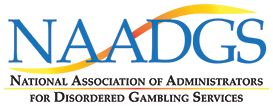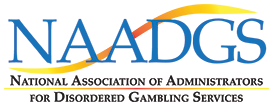Since January 2021 when NAADGS posted a blog regarding the legalization of on-line sports betting, legalized sports wagering has grown from 19 states to 34 jurisdictions that have legalized sports betting, including Puerto Rico and Washington, DC. That is a huge increase in a matter of 10 months. And more states are pending, including Ohio and Massachusetts. When will the spread stop? And remember, it all started in 2018 after the Supreme Court overturned PAPSA, the Professional and Amateur Sports Protection Act of 1992.
Even before this flood of sports wagering, the United States had been in a gambling expansion period, starting with the Indian Gaming Regulatory Act (IGRA) in 1988, which opened the doors to tribal gaming throughout the United States in the forms that we know today. With gambling activities comes responsibility to address the need for help for those who experience a gambling addiction, but also the responsibility to provide education and prevention services for all ages in order to increase awareness, establish safety guidelines, educate, and provide help should it be needed.
Two helpful webinars have been offered in recent months to shed light on our responsibility as citizens, as behavioral health practitioners, and as advocates. Heather Gray, PhD, from Cambridge Health Alliance presented a webinar early in the fall of this year entitled “Whose Responsibility is Responsible Gambling?” She supported the concept that responsible gaming is the responsibility of every stakeholder that benefits from the gaming: operators, regulators, treatment providers, preventionists. Social responsibility, or responsible gaming, is an individual effort and a shared collective responsibility.
In October 2021, Brianne Doura-Schawohl, Vice President for the US for EPIC Risk Management, presented a challenging webinar called “54321 of Sports Wagering.” Brianne shared fact after fact with us about sports betting.
- Only 16 states do not have pending or passed legislation regarding sports gambling.
- Only 6% of legislation that has been introduced across the country has problem gambling included in the thousands of bills that have been put forward.
- $27 B has been wagered on sports in the past 12 months.
- New Jersey had $1 B in handle from sports betting in September 2021, in a single month.
- Nine states that recently authorized sports betting did not dedicate any new funding to problem gambling services.
Brianne emphasized and supported Heather Gray’s thesis: Those who benefit from gambling are responsible for addressing the problems that result from the business: owners, operators, players, the state, everyone.
What can we be doing?
- Policy makers should be educating themselves. And we can help do that.
- Policy makers should include problem gambling funding. As administrators, when we analyze bills, we need to speak up with our superiors about the importance of funding to address problem gambling. We can work with our state councils and affiliates who can “advocate,” while we as administrators may not have the freedom to speak to legislators and decision makers.
- Policy makers need to mandate prevention programs for our youth. As administrators, we can include comments when analyzing bills; we can educate and inform within the system of communication that we have with superiors and department leadership.
- Policy makers need to protect problem gambling funding. As administrators, we know the struggle of hanging on to the little funding that we have. Taking the risk to speak up and speak out to our superiors in regard to preserving our program funding is imperative. Communication is key. People who have been helped by our programs can be called upon to speak out and give testimony when appropriate. Working alongside the state councils to share knowledge of upcoming legislation – so the council can use its voice in advocacy as we use our administrative voices in education – can inform policy makers.
- The Executive Director of NAADGS can write a letter of support for any state that needs such support to retain problem gambling funding or to ask that expanded funding be included in pending legislation. Just ask!
Responsible gaming is everyone’s responsibility, and in this time of huge gambling expansion, we are responsible for fighting for the people who are negatively impacted by gambling activities.


